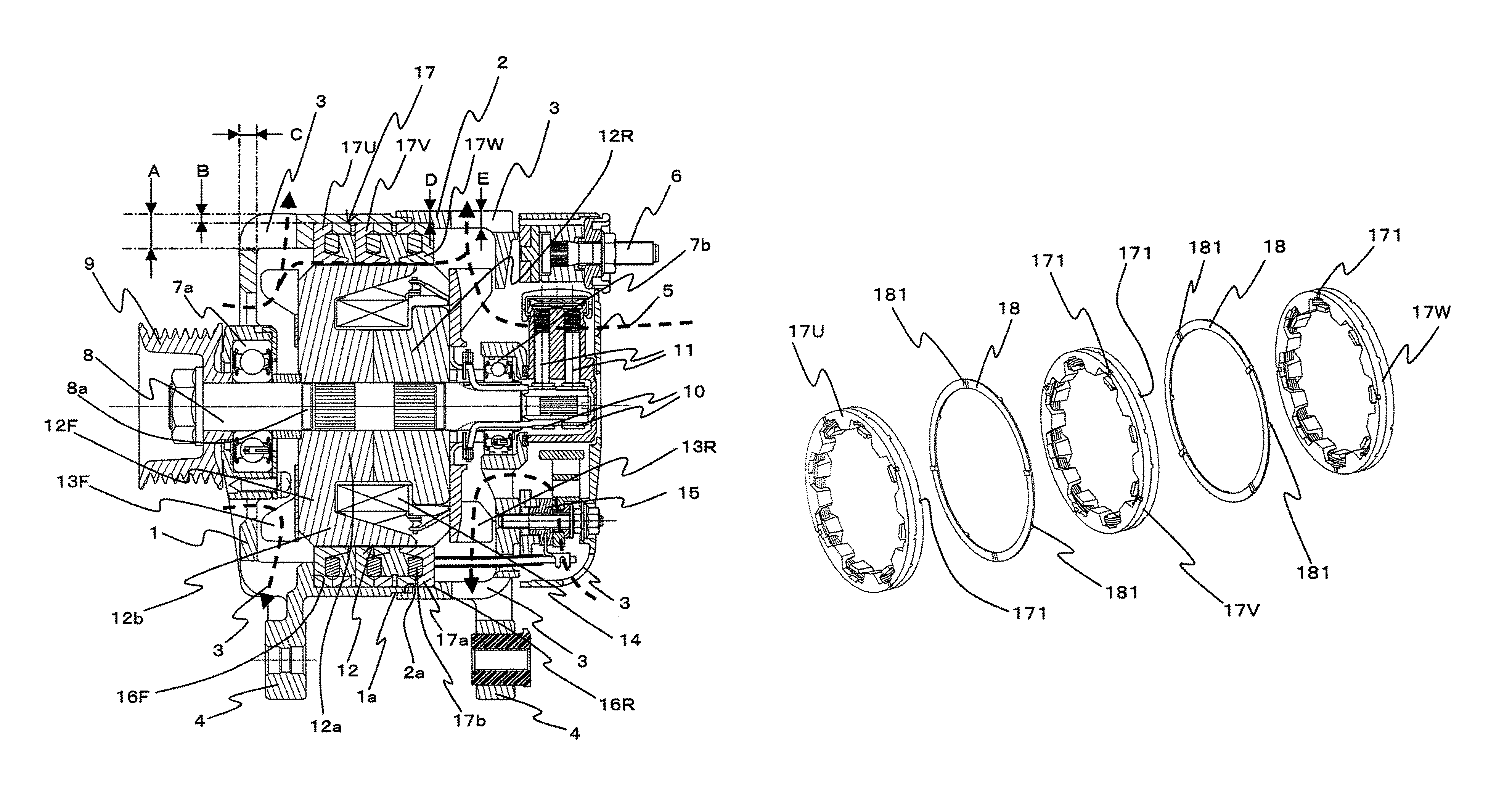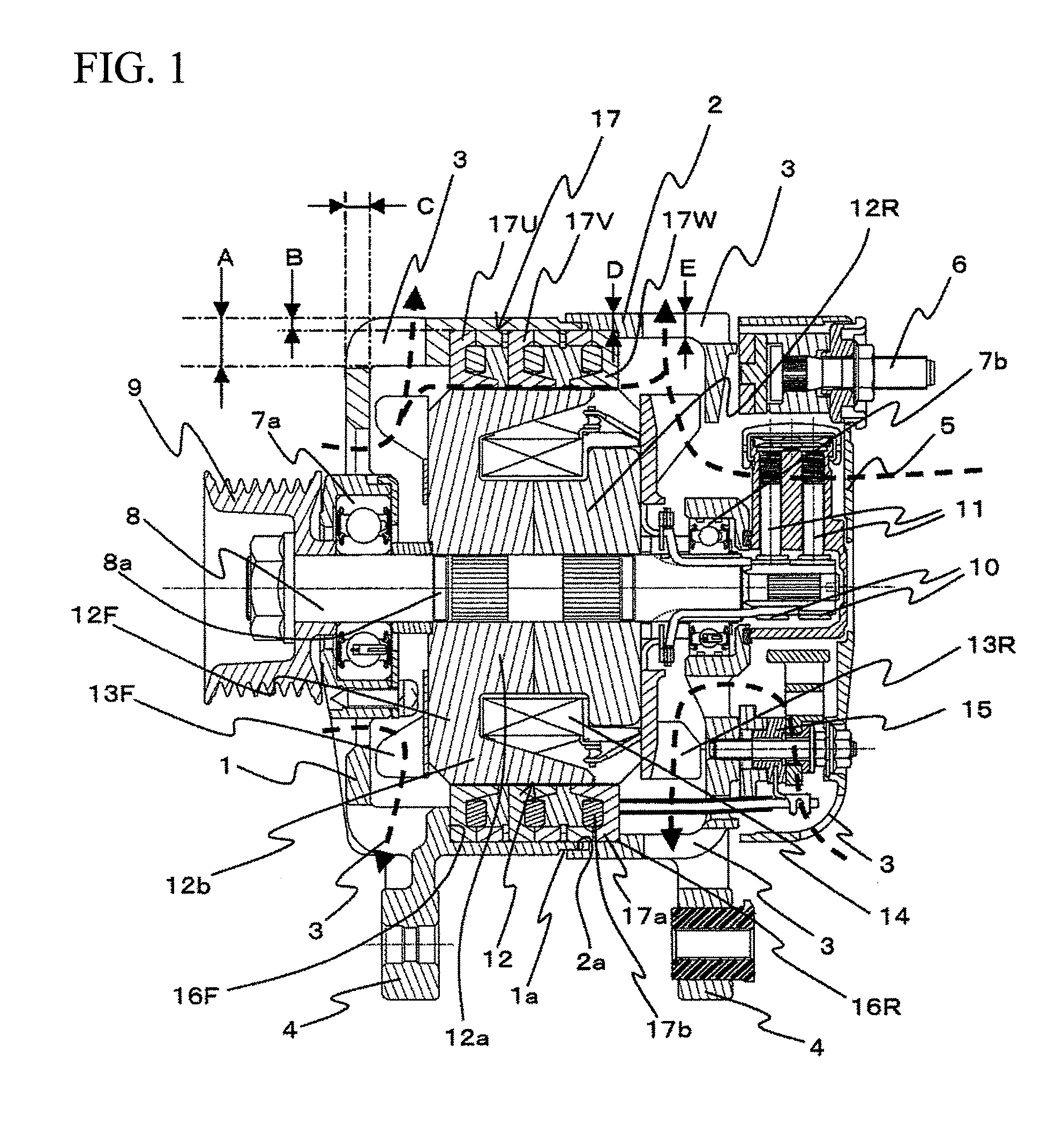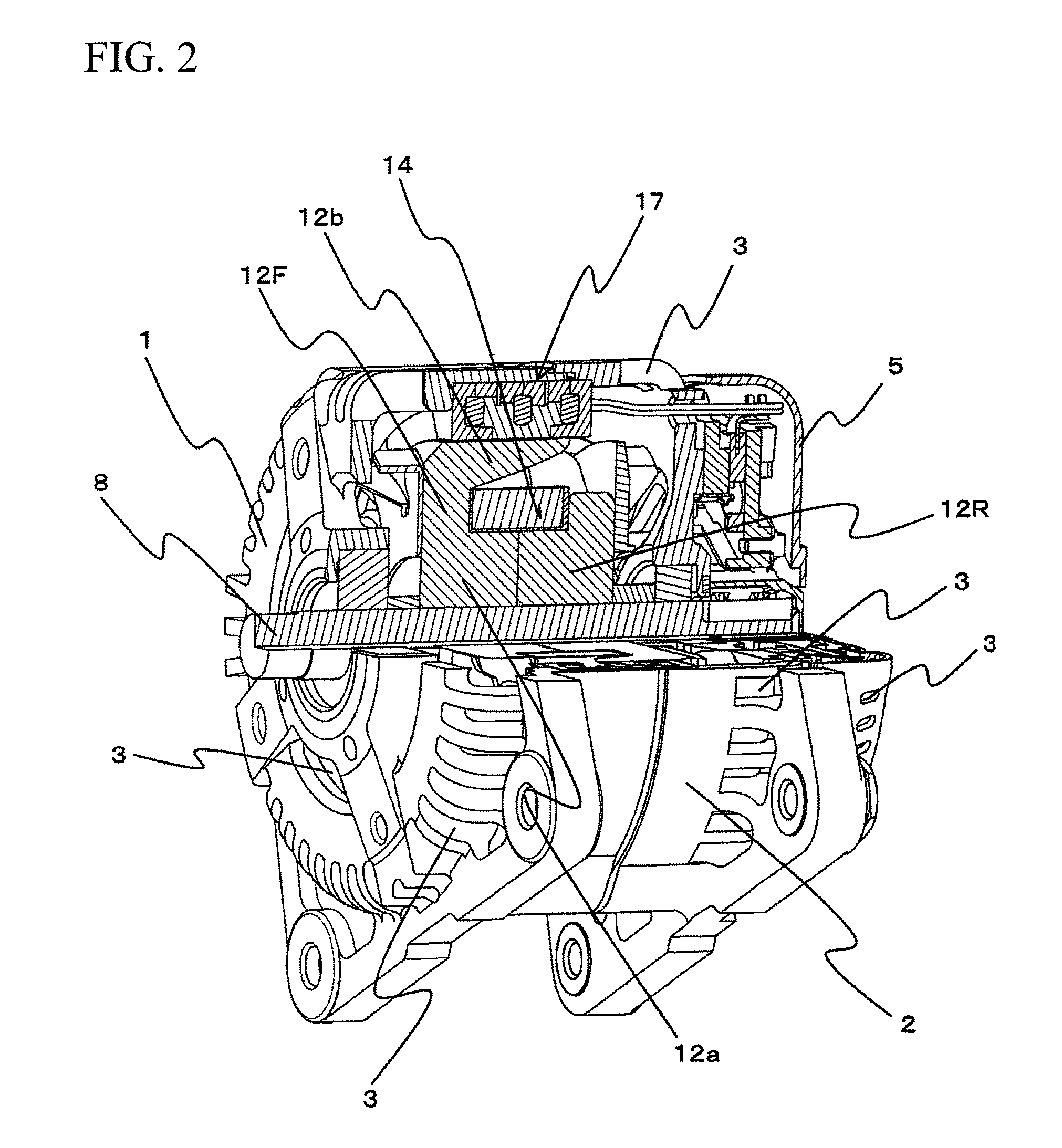Rotating electrical machine
a technology of rotating electrical machines and rotating shafts, which is applied in the direction of rotating parts of magnetic circuits, magnetic circuit shapes/forms/construction, cooling/ventilation arrangements, etc., can solve the problems of field magnetic flux not being changed in accordance, and field magnetic flux being generated, so as to facilitate winding of stators and change field magnetic flux
- Summary
- Abstract
- Description
- Claims
- Application Information
AI Technical Summary
Benefits of technology
Problems solved by technology
Method used
Image
Examples
first embodiment
[0037]A vehicular AC power generator which is one embodiment of the rotating electrical machine according to the present invention will be explained based on FIGS. 1 to 7. FIG. 1 is a side sectional view of the vehicular AC power generator. FIG. 2 is a partially cross sectional perspective view of the vehicular AC power generator. FIG. 3 is a partially sectional perspective view of a rotor and a stator. FIG. 4 is a perspective view of the rotor. FIG. 5A is a partially sectional perspective view of the stator only. FIG. 5B is a diagram showing the stator as viewed from its inner peripheral side. FIG. 6 is a perspective view of each phase of the stator. FIG. 7A is a perspective view of the stator from which one of the phases. FIG. 7B is a perspective view of the parts shown in FIG. 7A.
[0038]FIG. 1 shows a vehicular AC power generator of the embodiment. The vehicular AC power generator includes a front bracket 1 disposed on the left side in FIG. 1 and a rear bracket 2 disposed on the l...
second embodiment
[0082]Next, a second embodiment will be explained based on FIGS. 8A and 8B and FIG. 9. FIG. 8A shows output waveform of voltage induced in each phase in the first embodiment. FIG. 8B shows output waveform of voltage induced in each phase in the second embodiment. FIG. 9 is a perspective view showing a rotor and a stator in the second embodiment in section. The same elements as those of the first embodiment are designated with the same name and the same symbols.
[0083]As explained above, in the stator 17 of the first embodiment, the stator cores 17a of the U-phase, the V-phase and the W-phase are disposed adjacent to each other through the connection plates 18. However, even if the phases are connected to each other through the non-magnetic connection plates 18, magnetic flux may leak into the adjacent stator core 17a in some cases. When magnetic flux leaks into the adjacent stator core 17a, magnetic flux leaks into both sides of the stator core 17a of the V-phase disposed between the...
third embodiment
[0089]Next, a third embodiment will be explained based on FIG. 10. FIG. 10 is a perspective view showing a rotor and a stator of the third embodiment in section. The same elements as those of the other embodiments are designated with the same name and the same symbols.
[0090]In the third embodiment, the shape of the permanent magnet 19 is different from that of the second embodiment, but other portions are substantially the same as those in the second embodiment. In the permanent magnet 19 of the third embodiment, a portion corresponding to the V-phase stator 17V is thick so that a cross section in the axial direction assumes substantially T-shape, and portions corresponding to the U-phase stator 17U and the W-phase stator 17W are thin.
[0091]Therefore, in the V-phase stator 17V, the leakage magnetic flux between the rotor pawl magnetic poles 12b is reduced as compared with other phases, and the leakage magnetic flux is increased as compared with the V-phase stator 17V. However, the l...
PUM
 Login to View More
Login to View More Abstract
Description
Claims
Application Information
 Login to View More
Login to View More - R&D
- Intellectual Property
- Life Sciences
- Materials
- Tech Scout
- Unparalleled Data Quality
- Higher Quality Content
- 60% Fewer Hallucinations
Browse by: Latest US Patents, China's latest patents, Technical Efficacy Thesaurus, Application Domain, Technology Topic, Popular Technical Reports.
© 2025 PatSnap. All rights reserved.Legal|Privacy policy|Modern Slavery Act Transparency Statement|Sitemap|About US| Contact US: help@patsnap.com



